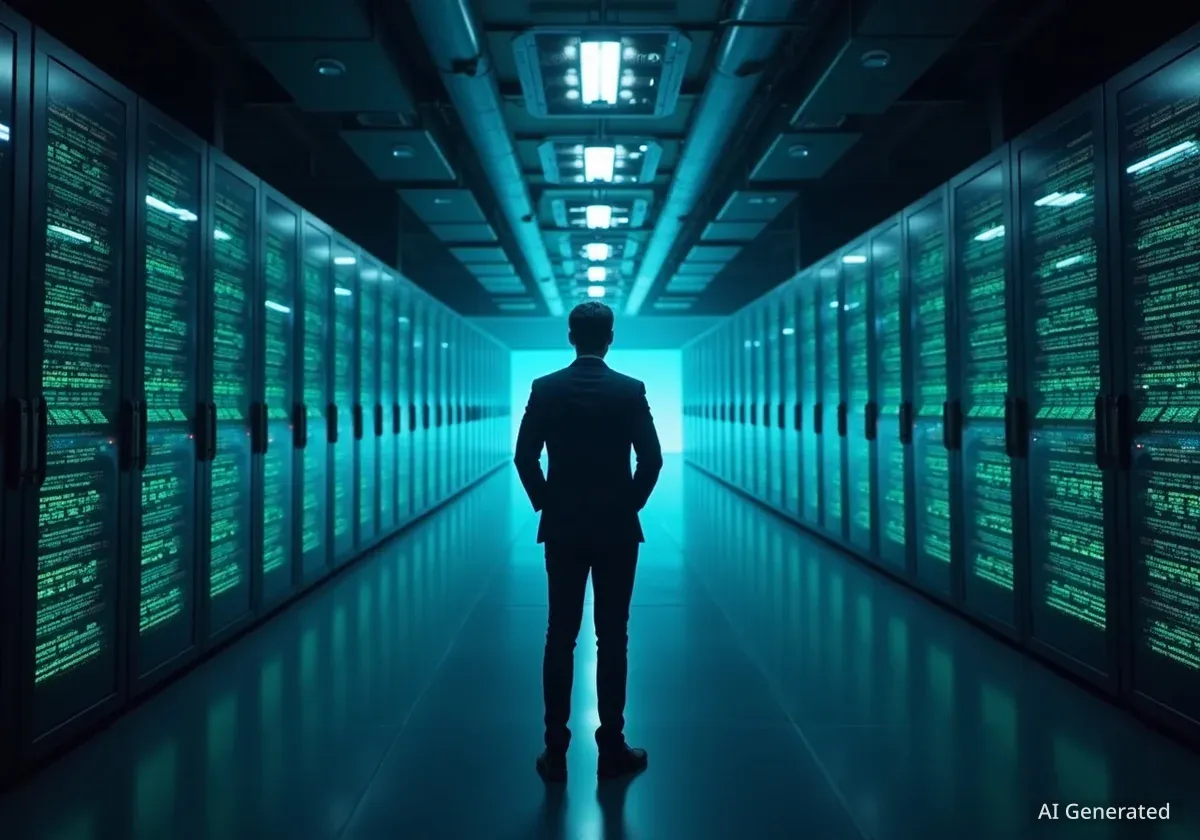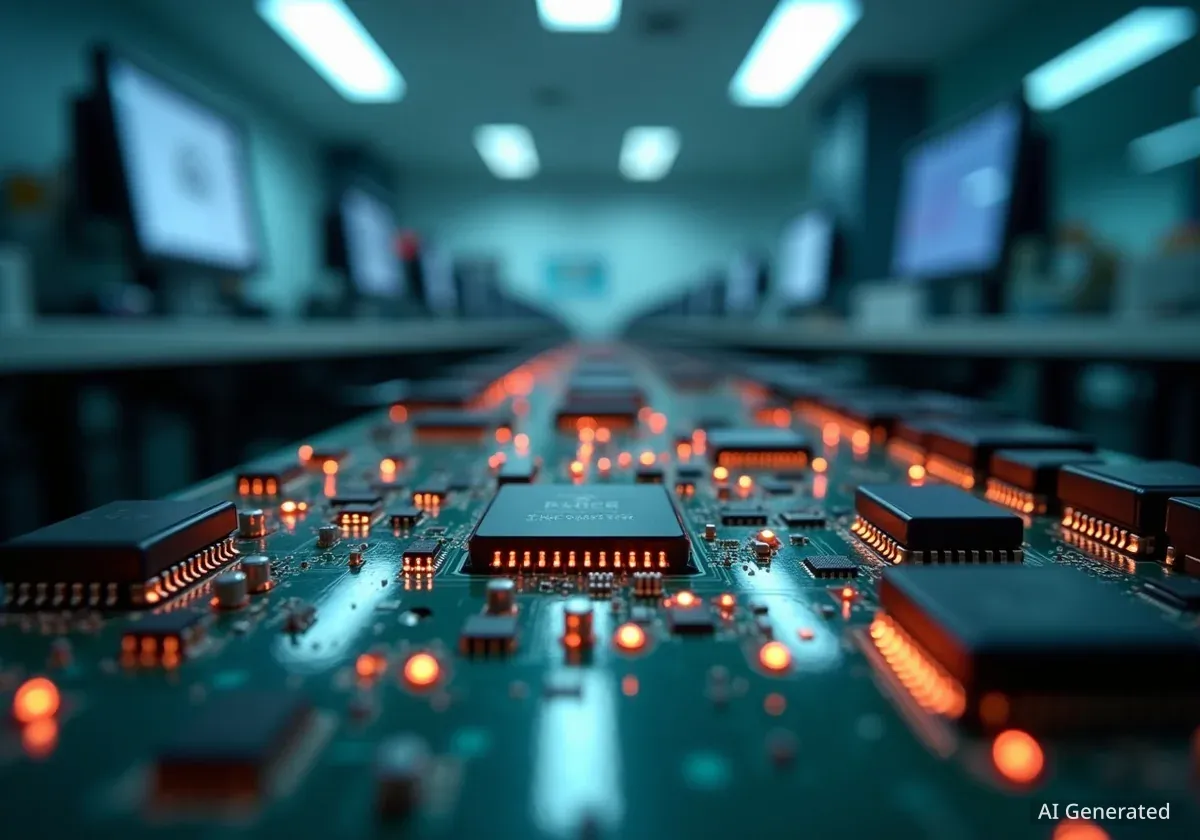Anthropic has announced the release of Claude Sonnet 4.5, a new artificial intelligence model designed for complex, long-duration tasks. According to the company, the model can operate autonomously for more than 30 hours, a significant increase that enhances its capabilities in specialized fields like coding, finance, and cybersecurity.
Key Takeaways
- Anthropic released Claude Sonnet 4.5, a new AI model with enhanced performance.
- The model can perform autonomous work for over 30 hours, a substantial improvement from the previous seven-hour limit.
- It shows improved skills in coding, financial analysis, and cybersecurity tasks.
- The company also launched its first brand campaign to increase consumer awareness and compete with OpenAI.
A New Standard for AI Endurance
One of the most significant advancements in Claude Sonnet 4.5 is its ability to sustain focus on a single task for extended periods. The model can now work continuously for more than 30 hours without human intervention. This capability is a crucial step forward for the development of AI agents, which are systems designed to carry out multi-step tasks independently.
Previously, Anthropic's most advanced model, Claude Opus 4, had an autonomous work limit of approximately seven hours. The more than fourfold increase in operational duration means Sonnet 4.5 can handle projects that were previously out of reach for autonomous systems, such as complex code refactoring, in-depth market analysis, or comprehensive security audits that take more than a standard workday to complete.
From Seven to Thirty Hours
The operational endurance of Anthropic's AI has increased from 7 hours with Claude Opus 4 to over 30 hours with the new Claude Sonnet 4.5. This leap is critical for creating reliable AI agents capable of managing complex, long-term assignments.
This extended autonomy is essential for enterprise applications where tasks cannot be completed in short bursts. For example, an AI agent could now be tasked with monitoring a network for security threats over several days or managing a lengthy data migration project from start to finish. This reduces the need for constant human oversight and allows for more complex automation.
Enhanced Performance in Specialized Fields
Beyond its endurance, Anthropic reports that Claude Sonnet 4.5 delivers superior performance in several key professional domains. The company highlighted specific improvements in coding, finance, and cybersecurity, making the model a more powerful tool for developers, analysts, and security professionals.
In software development, the model can reportedly handle more complex coding challenges, assist with debugging, and even contribute to building future versions of itself. This self-improvement capability is a major factor in the accelerating pace of AI development. In finance, its enhanced analytical skills can be applied to market forecasting, risk assessment, and processing large volumes of financial documents.
What is AI Alignment?
AI alignment refers to the process of ensuring that an AI system's goals and behaviors are consistent with human values and intentions. Anthropic has emphasized that Sonnet 4.5 is its "most-aligned" model, suggesting a focus on safety and preventing unintended or harmful outcomes as its models become more powerful and autonomous.
For cybersecurity, the model's ability to analyze threats and manage security protocols over extended periods makes it a valuable asset. It can perform continuous vulnerability scanning and incident response, tasks that require persistent attention. Anthropic also stated that this new version is its "most-aligned" model to date, indicating a continued focus on safety and reliability.
Accelerating Development and Self-Improvement
The release of Sonnet 4.5 continues a pattern of rapid innovation at Anthropic. With major updates also occurring in February and May, the company suggests its models are doubling in their ability to handle complex tasks approximately every six months. This exponential growth is partly driven by the AI's own contributions to its development.
At the recent Axios AI+ DC Summit, Anthropic CEO Dario Amodei confirmed this trend. He explained that the company's Claude models are increasingly involved in writing the software code for their successors.
"Terminator isn't real yet, but AI's ability to grow itself is accelerating exponentially," was a key observation following Amodei's remarks, highlighting the profound implications of AI self-replication in software development.
This self-improvement loop means that each new generation of AI is more capable of building an even more powerful successor. This dynamic is a primary reason for the rapid acceleration in AI capabilities seen across the industry, shortening development cycles from years to months.
Entering the Consumer Market
In a strategic shift, Anthropic has also launched its first-ever brand campaign. While the company has established a strong presence in the enterprise AI market, this move signals a clear intention to build brand recognition among the general public. The consumer AI space is currently dominated by competitors like OpenAI, the creator of ChatGPT.
The campaign aims to raise public awareness of the Claude brand and its capabilities. By appealing directly to consumers, Anthropic hopes to broaden its user base beyond its traditional enterprise and developer clients. This strategy could help it compete more effectively for talent, investment, and market share in the increasingly crowded AI landscape.
This public-facing initiative suggests that Anthropic sees a future where its technology is not just a tool for businesses but also a part of everyday consumer life. As AI models become more integrated into common applications, brand recognition and public trust will become increasingly important competitive advantages.





